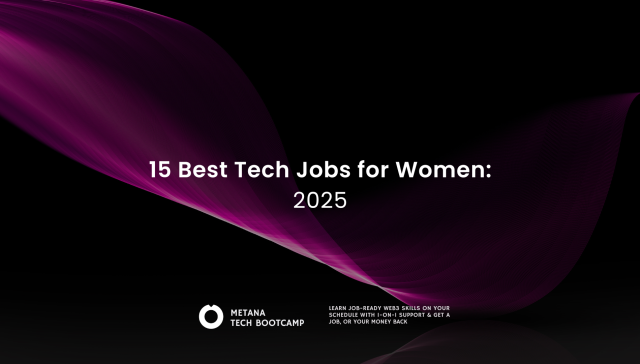Smart contracts, the self-executing code on blockchains, have revolutionized various industries. They offer trust, transparency, and automation in transactions, forming the backbone of Decentralized Applications (dApps). However, a core principle of smart contracts – immutability – presents a challenge: how do you adapt these contracts to fix bugs, add features, or comply with evolving regulations? This article explores the concept of upgrading smart contracts, its methods, advantages, and inherent security concerns.
The Immutability Conundrum
Immutability is a double-edged sword. It ensures tamper-proof execution of the code, fostering trust and security. Users know the contract’s behavior remains unaltered, and past transactions are irreversible. This is crucial for financial applications like DeFi (Decentralized Finance) where immutability safeguards user funds.
However, immutability also hinders flexibility. Once deployed, any errors in the code become permanent, potentially leading to vulnerabilities or hindering future functionalities. Imagine a deployed contract with a critical security flaw – immutability prevents a simple patch, potentially jeopardizing user assets.
The Need for Upgrades
Despite the benefits of immutability, there are compelling reasons to consider upgrading smart contracts. Let’s take a look at few,
- Bug Fixes: Newly discovered vulnerabilities can pose a significant threat. Upgrading allows developers to patch these security holes and maintain user trust.
- Feature Enhancements: As technology and user needs evolve, adding new features can revitalize a dApp. Upgradable contracts enable developers to continuously improve their offerings.
- Regulatory Compliance: Emerging regulations in the blockchain space might necessitate changes to smart contract functionalities. Upgrades ensure compliance and continued operation.
- Performance Optimization: Inefficiencies in the code can hinder transaction speeds and gas costs. Upgrading allows for code optimization to improve the user experience.
Upgrading Strategies: Bypassing Immutability
While directly modifying deployed code is impossible, there are strategies to achieve a semblance of upgrades.
- Multi-Contract Approach: This involves deploying a new contract with the desired changes and migrating user data from the old contract. While functional, it creates a new address, potentially causing user confusion and requiring updates to dApps interacting with the old contract.
- Upgradeable Smart Contracts (USCs): This approach utilizes a two-contract system:
- Proxy Contract: Acts as a middle layer, receiving user interactions and forwarding them to the actual logic contract.
- Logic Contract: Contains the actual code that gets executed.

The beauty lies in upgrading the logic contract. Developers deploy a new logic contract with the desired changes and update the proxy contract to point to the new one. This preserves the original address and user experience while implementing the upgrade.
There are various implementations of USCs, with the Proxy Pattern being the most common. OpenZeppelin, a popular blockchain development framework, offers tools to streamline USC development.
Advantages of Upgradable Smart Contracts
Upgradable smart contracts offer several advantages.
- Enhanced Security: Prompt patching of vulnerabilities minimizes the attack window for malicious actors.
- Improved Functionality: New features and functionalities can be added, keeping dApps competitive and user-centric.
- Dynamic Adaptability: The ability to adapt to changing regulations or market conditions fosters long-term sustainability.
- Cost-Effectiveness: Upgrades can be cheaper than deploying entirely new contracts, reducing development and migration costs.
Security Concerns: The Flip Side of the Coin
While advantageous, upgradability introduces new security concerns.
Centralization Risk: The entity controlling the upgrade process (often the contract deployer) holds significant power. Malicious actors gaining control could introduce harmful changes.
Accidental Upgrades: Human error during the upgrade process could introduce bugs or security vulnerabilities. Rigorous testing and audits are crucial.
Potential for Abuse: Upgradability could be misused to introduce unauthorized changes or manipulate contract behavior for personal gain.
Mitigating Security Risks
Several measures can mitigate the security risks associated with upgradable smart contracts.
- Decentralized Governance: Shifting upgrade control to a Decentralized Autonomous Organization (DAO) distributes power and reduces the risk of a single point of failure.
- Multi-Sig Wallets: Requiring multiple signatures for upgrades adds an extra layer of security, preventing unauthorized changes.
- Time-Lock Upgrades: Introducing a time delay between proposing and implementing an upgrade allows for community scrutiny and reduces the risk of rash decisions.
- Formal Verification: Formally verifying the upgrade process mathematically ensures its correctness and minimizes the chances of introducing vulnerabilities.
Finding the Right Balance
The decision to implement upgradable smart contracts requires careful consideration. Here are some factors to consider.
- Project Requirements: If a project prioritizes absolute immutability (e.g., storing critical legal documents), a non-upgradeable contract might be preferable.
- Security Expertise: Developing and maintaining secure upgradeable contracts requires a high level of expertise. Projects lacking this expertise might be better suited for non-upgradeable contracts.
- Community Involvement: For DAOs or projects with strong community involvement, decentralized governance models for upgrades become more viable.
Standardization Efforts
The blockchain community is actively working on standardizing upgradable smart contract patterns. The EIPs (Ethereum Improvement Proposals) play a crucial role in this effort. EIP-1967, for example, outlines a standard for Upgradeable Proxy Contracts, promoting interoperability and development best practices.
Emerging Technologies
Several emerging technologies hold promise for the future of upgradable smart contracts:
- Self-upgradable Contracts: These theoretically allow contracts to autonomously upgrade themselves based on pre-defined conditions. While still in the research phase, they offer a vision of truly dynamic contracts.
- Modular Smart Contracts: By breaking down functionality into smaller, upgradeable modules, developers gain finer control over the upgrade process and potentially reduce security risks.
Conclusion: Upgrading Smart Contracts
Upgradable smart contracts offer a compelling solution to the immutability challenge, fostering adaptability and innovation in the blockchain space. However, it’s crucial to acknowledge the inherent security concerns and implement robust mitigation strategies. As the technology matures, standardization efforts, community involvement, and emerging advancements will pave the way for a future where secure and adaptable smart contracts become the norm. Upgrading smart contracts is an essential aspect of this evolution, ensuring continuous improvement and adaptation in response to new challenges and opportunities.

FAQs
What is a smart contract upgrade?
- A smart contract upgrade involves modifying or enhancing the contract’s code to improve functionality, fix bugs, or add new features while ensuring the integrity and security of the contract.
Why is upgrading smart contracts important?
- Upgrading is crucial to address vulnerabilities, improve performance, and integrate new functionalities, ensuring the smart contract stays relevant and secure in the rapidly evolving blockchain ecosystem.
Can you upgrade a smart contract after deployment?
- Yes, though traditionally smart contracts are immutable, there are strategies like using proxy contracts or versioning systems that allow for post-deployment upgrades.
What are the risks associated with upgrading smart contracts?
- Upgrading can introduce new vulnerabilities or bugs, potentially affecting the contract’s security and functionality, which underscores the need for thorough testing and auditing.
What best practices should be followed when upgrading smart contracts?
- Employ a transparent and methodical approach, including extensive testing, code audits, clear documentation, and ensuring backward compatibility when necessary.
How does blockchain technology work?
- Blockchain is a decentralized ledger that records transactions across a network of computers, ensuring transparency, security, and immutability of data.
What is Ethereum?
- Ethereum is a blockchain platform that allows developers to build and deploy decentralized applications and smart contracts.
What is the significance of smart contract security?
- Security is paramount in smart contracts to prevent financial losses, unauthorized access, and to maintain trust in the blockchain infrastructure.
How do decentralized applications (dApps) utilize smart contracts?
- dApps use smart contracts as the backend code running on a blockchain, facilitating various functions and interactions in a decentralized manner.
What are the future trends in smart contract development?
- Future trends include enhanced security features, cross-chain functionality, increased scalability, and the integration of artificial intelligence for smarter contract logic.





